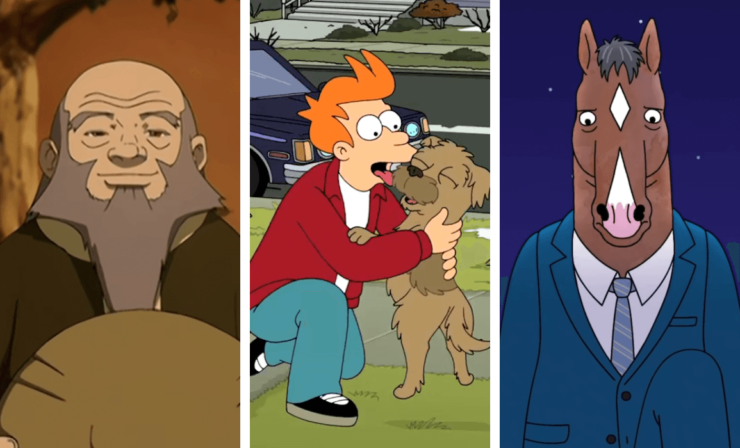Art has a way of weaving its way into our hearts and tugging on the strings, urging us to experience real, deeply human emotions while we consume fictional stories. Readers, of course, are no strangers to this, and recent years have also seen an influx of intensely personal stories on big and small screens alike. Joy, fear, confusion, excitement, and pain all resound through our favorite narratives, and we tend to seek out stories with impactful emotional messages.
Among those emotions, sadness is often the hardest to get right. There’s a fine line between pandering to an audience and offering a genuine moment that allows us to feel sadness and connect it to our own lives, hopefully without whisking us away to another story beat before we get a chance to reconcile what has happened.
Below, I discuss five TV episodes that strike that balance, giving viewers an outlet to experience sadness and empathy for the characters involved and connect with stories on a personal level. It’s okay to cry, of course, and these narratives will ensure that you do…
Futurama — “Jurassic Bark”
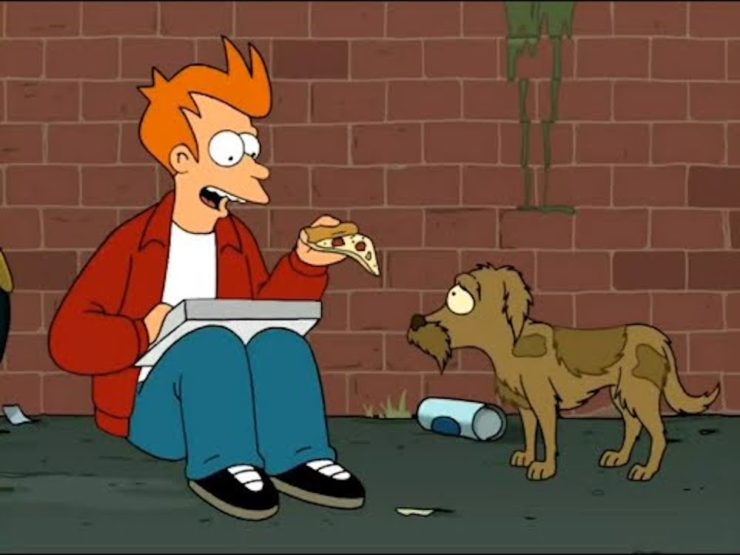
You know it. You love it. You sob like a baby when you watch the final sequence. When I first showed my wife “Jurassic Bark,” she turned to me with glistening eyes and in a meek voice asked, “Why they do this?” We sat in the sadness for a moment before seeking out our two cats to shower them with love and scritches.
Futurama may be best known for its sci-fi antics and pithy one-liners, but it also delivered the single saddest scene I’ve ever witnessed on TV. Philip J. Fry urges Professor Farnsworth to clone his long-lost dog, Seymour, after finding his fossilized form. But when the Professor reveals Seymour was preserved at 15 years old, Fry realizes the pup lived for 12 years after he disappeared into the future. Why wake Seymour from his slumber when he lived a full life after Fry left?
Then, “Jurassic Bark” delivers an emotional gut-punch so strong I sob every time. Seymour, now without his best friend Fry, sits outside Panucci’s Pizza waiting for his companion. Connie Francis’ “I Will Wait For You” kicks in, offering a melancholy soundtrack for the scene to come. We watch Seymour grow old as seasons change and years pass while he sits, waiting patiently for Fry. The city street changes around Seymour, and he becomes an old mutt, futilely awaiting the return of his lifelong friend.
“Jurassic Bark” makes me well up every time. It was instantly my first choice for this article, and I imagine it was likely your first thought after you read the headline. I appreciate the final scene and the episode that precedes it because no other TV show has captured the sense of unconditional love and companionship our pets bring us as well as these 22 minutes manage to do. Those who know the pain of a pet’s loss will shed an involuntary tear for Seymour and Fry. Personally, I always think of Baloo and Iroh—my feline companions—when I watch this episode. I let loose some tears for the eventual pain I will suffer at their loss, but I also shed tears of appreciation for the joy they bring me on a daily basis. The Futurama team knows the special, irreplaceable love and loyalty given to us by our pets, and “Jurassic Bark” remains the single best portrayal of this bond I’ve ever seen.
Fullmetal Alchemist Brotherhood — “An Alchemist’s Anguish”
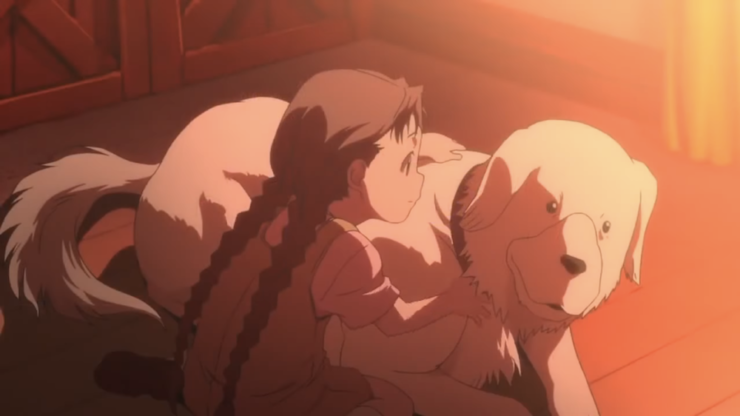
Episode FOUR?! Are you kidding me?!
I first watched Fullmetal Alchemist Brotherhood at the incessant prodding of my best friend. Credit where it’s due, it quickly became one of my favorites.
Little did I know that a peppy Nina Tucker and her dog Alexander would stroll into my life brimming with joy. Or that Nina Tucker’s entrance into my orbit would only result in the visceral rending of my soul into one billion pieces just 22 minutes later.
“An Alchemist’s Anguish” isn’t as widely known and discussed as “Jurassic Bark,” so I won’t proffer any outright spoilers here. But I will speak to the emotional anguish pervading this sublime TV episode.
Sometimes the monsters we create can’t hold a candle to the maliciousness residing in the hearts of our most villainous fellow humans. No matter how hard we try, we can’t help everyone. The Elric brothers learn this lesson (and then some) in “An Alchemist’s Anguish,” bringing the episode to a heart-wrenching and, frankly, unbearably sad climax. Yes, it makes me cry. Tears for the loss of innocence, and an ugly sob for the vicious deeds some human monsters are willing to reap upon the world.
Moreover, “An Alchemist’s Anguish” sets the stage for the remainder of the FMA series. Nobody is safe. Innocent people don’t always get the good fortune they deserve. Nina Tucker suffered for no reason at all, save for the circumstances she was born into.
This wasn’t the only time Fullmetal Alchemist Brotherhood made me cry, but it was the first, and it certainly hurt the most. Watch it with caution, or at the very least be prepared for the emotional onslaught this episode delivers.
Bonus: If the heart-rending Nina Tucker episode is your jam, I highly recommend the anime Made In Abyss. Season 1 ends with a tragic climax that rivals “An Alchemist’s Anguish.”
Scrubs — “My Screw Up”
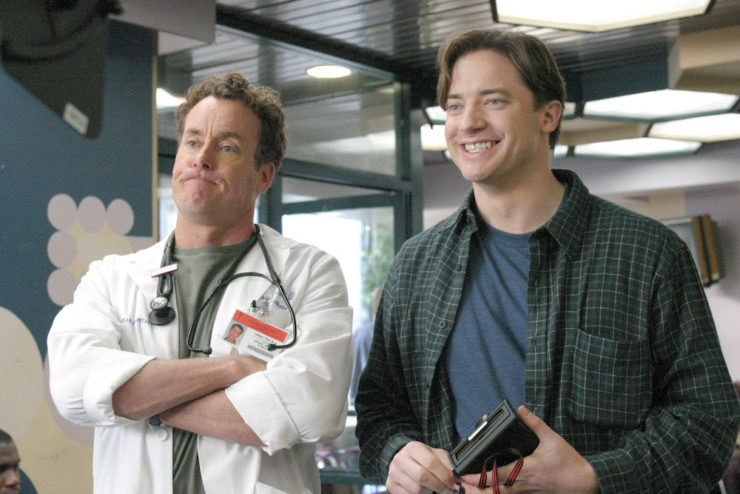
I’ve watched Scrubs in its entirety three or four times, and have decided to leave the show in my past. I find the characters now feel grating to me upon rewatching, though I always appreciated the meaningful stories and messages the sitcom was willing to explore.
One episode always sticks with me, however; it’s immune to my rewatch fatigue: “My Screw Up.”
Dr. Cox wallows in the throes of denial, insisting that he’s preparing for his son Jack’s first birthday party. Throughout the episode, though, we receive subtle hints that all is not as it seems. Dr. Cox is on call for incredibly long stretches, and his colleagues’ concern for him is apparent in every interaction. He has chats with Ben, his best friend and pseudo-brother-in-law, played with equal parts joviality and a sense of underlying sadness by Brendan Fraser.
Without giving too much away, the final reveal shows us that Dr. Cox was indeed mistaken about the day and the event he’d been anticipating. It draws on events from previous guest appearances and storylines, bringing one character’s arc to a devastating conclusion, leavened with just a dash of hope.
“My Screw Up” deals with loss, grief, and denial in terms that feel real and relatable. Dr. Cox’s struggle is universal in a way, familiar on some level to everyone who has experienced a trying time or the loss of a loved one. The reveal of the episode’s twist summons the waterworks for me every time, both on behalf of Dr. Cox and for the family members to whom I’ve said my final goodbyes.
BoJack Horseman — “Nice While It Lasted”
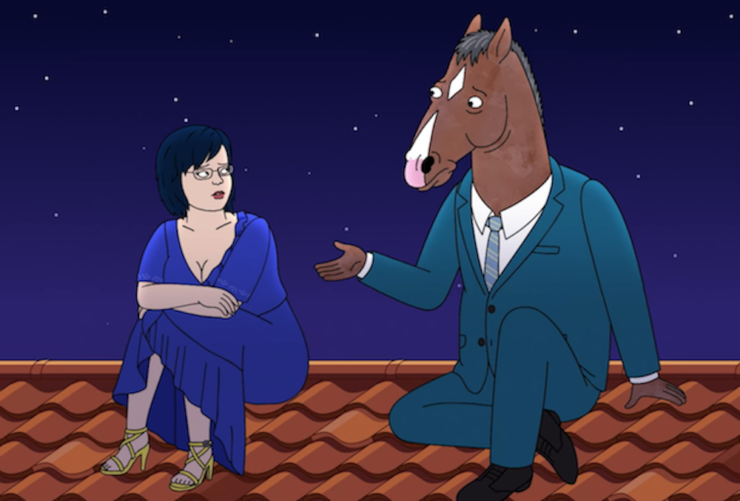
I watched “Nice While It Lasted” when it first released in January 2020, blissfully unaware—as we all were—of the real-world events soon to come. Turns out, BoJack Horseman’s final episode would remain a tear-inducing commentary on relationships that have served their purpose and deserve, for the sake of all involved, to end.
The tearjerker moment in question here is the very final scene. Diane and BoJack sit atop the roof at Princess Carolyn’s wedding and endure an awkward catch-up. They leave a lot left unsaid, and the show’s final moments settle into an uncomfortable silence between the two characters, beautifully soundtracked by Catherine Feeny’s “Mr. Blue.”
I cry for BoJack here, because he’s finally learning that his toxicity can bring relationships he values to an end. I cry for Diane, because she values BoJack for his efforts to recover but learned, in the end, that their friendship doesn’t fit into her ongoing journey of finding herself and constantly improving. I cry for myself, because watching “Nice While It lasted” reminds me that my past can shape my present, but it doesn’t have to define me. The mistakes of yesterday can serve as opportunities for bettering myself, rather than reasons to tear myself down.
The silence of this final scene, broken only by the backing track, tells us that some things are meant to end—better if they end, even. “Nice While It Lasted” offers a blank canvas, beckoning the tears to splash across it; sad, but also cathartic. The lessons packaged within the incredible run of BoJack Horseman all culminate in a single, reflective moment, and it hits the mark every time.
Avatar: The Last Airbender — “The Tales Of Ba Sing Se”
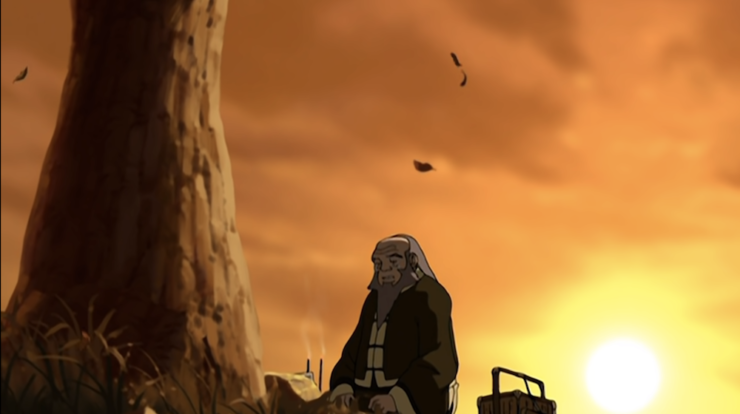
Here we go. Any time I need a good cry, I tea up (pun intended) “The Tale Of Iroh” and prepare for the waterworks.
Uncle Iroh wanders the streets of Ba Sing Se, content to exist within a society that doesn’t want to impress its culture on the rest of the world (though, to be fair, Ba Sing Se does have its fair share of issues). He calms a crying child with a silly song, teaches local children when to own up to mistakes or when to run away, and offers a helping hand to a would-be mugger who’s better served by an honest and sympathetic conversation.
Then, after we see Iroh offer the best parts of himself to others, he climbs a hill adorned by a lone tree overlooking the city and holds a modest vigil for his son, Lu Ten.
“Leaves from the vine, falling so slow
Like fragile, tiny shells, drifting in the foam.”
He sings, the lyrics an ode to his fallen child, lost to the violence of his homeland’s genocidal war.
“Little soldier boy, come marching home
Brave soldier boy, comes marching home.”
He sings the final words teary-eyed, the melody faltering as it fades. Iroh ends the vigil by wishing a happy birthday to his late son, and I cry and cry, even after the story ends.
Iroh’s tears are equal parts sadness for Lu Ten’s loss and for Zuko’s current path. After losing his son by blood, Iroh invests himself in the growth of Zuko, becoming the caring father the prince never had. Iroh knows Zuko is lost in a way, but he isn’t beyond the hope of recovery. Zuko is Iroh’s second chance, his opportunity to prove he can shape the world around his belief in hope, the power of goodness, and humility.
This scene glows with an emotional brilliance I’ve rarely seen replicated. Iroh’s vigil for Lu Ten summons a wellspring of feelings, all mixing together to create an effortlessly beautiful moment.
***
Are there scenes that make you tear up every time you watch? Scenes I’ve missed that pack an emotional punch or offer a powerful emotional statement? Feel free to share them below in the comments.
Cole Rush writes words. A lot of them. For the most part, you can find those words at The Quill To Live or on Twitter @ColeRush1. He voraciously reads epic fantasy and science-fiction, seeking out stories of gargantuan proportions and devouring them with a bookwormish fervor. His favorite books are: The Divine Cities Series by Robert Jackson Bennett, The Long Way To A Small, Angry Planet by Becky Chambers, and The House In The Cerulean Sea by TJ Klune.










